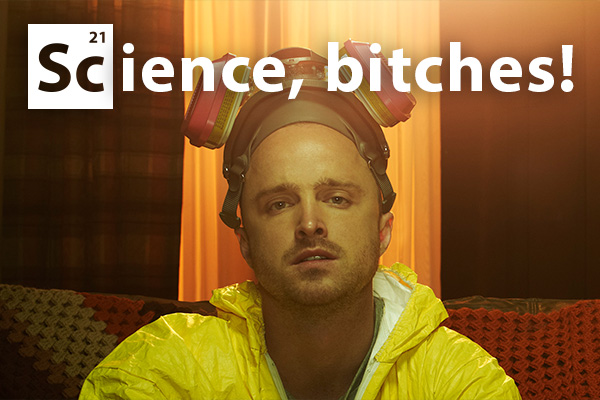Science, Bitches | Issue 26
Antibiotic Antics
Fast forward to 2014, and we’ve got a plethora of antibiotics to choose from, but we’re actually getting worse at treating infections – I’m sure you hear about outbreaks of antibiotic resistant bacteria like MRSA all the time. So what happened? Why did we start losing the race?
It’s a pretty simple answer, actually – evolution. I’m sure you all understand the concept survival of the fittest. It’s pretty easy to grasp. Take a population (2000 freshers?) put them in an environment (first year health sci?) and only the ones that can cope will make it to med school. Now that’s only one environment – take the same 2000 students and drop them in a desert, a different group would “survive.” Or if you sent them to X Factor, it would be a different group again. If you were going to get even weirder with this experiment, imagine if you took the “survivors” and made them have kids with each other. You put their kids in the same situation, and the ones that survive would have kids that were bloody good at memorising stuff/finding water/singing. It’s not that the environments have created that trait, it’s just taking advantage of natural variation found in the population – some people are brainy, some are sporty, some are arty.
Now imagine that instead of waiting a couple of decades to have kids, these people could reproduce every 20 minutes. And imagine that the “environment,” or selection pressure, is an antibiotic like penicillin. It only takes a small change to the DNA of one bacteria for it to become resistant to penicillin, so if you take penicillin, that’s the one that will survive. If it has a chance to grow and reproduce, most of its offspring will have that same DNA change that makes them resistant. If you try to use penicillin on this new population, it won’t work very well.
So what you’ve got to do is, basically, kill them all first time around. When you take antibiotics, feeling better doesn’t mean you can stop – even when the infection is gone, a couple of bacteria might still be hanging around. But that’s all you need to become re-infected, except the next time it’ll be harder to kill. So, PSA: always finish a course of antibiotics. Oh, and they don’t kill viruses, so if you have a cold then stay well away – all they’ll do is hurt your friendly bacteria!
The problem is that antibiotics are used all the time, globally, so inevitably some slip through the cracks and become resistant. But the good news is that they often lose resistance over time – if you’re not in a desert, why would you practice finding water? So maybe we just need to cut down on our antibiotics a bit. Antibiotics are great, but we should only be using them when we really need them. That’s science, bitches!






